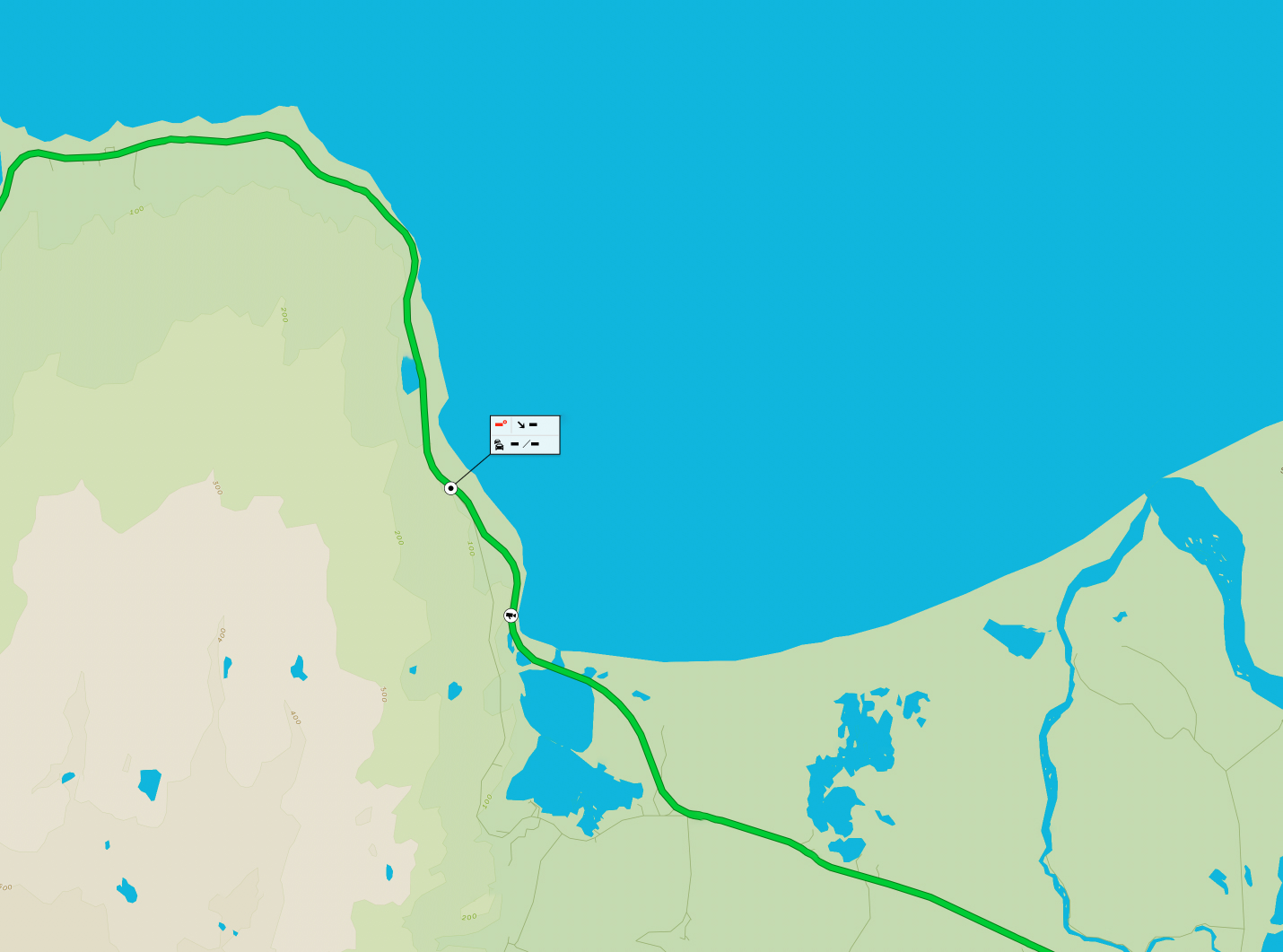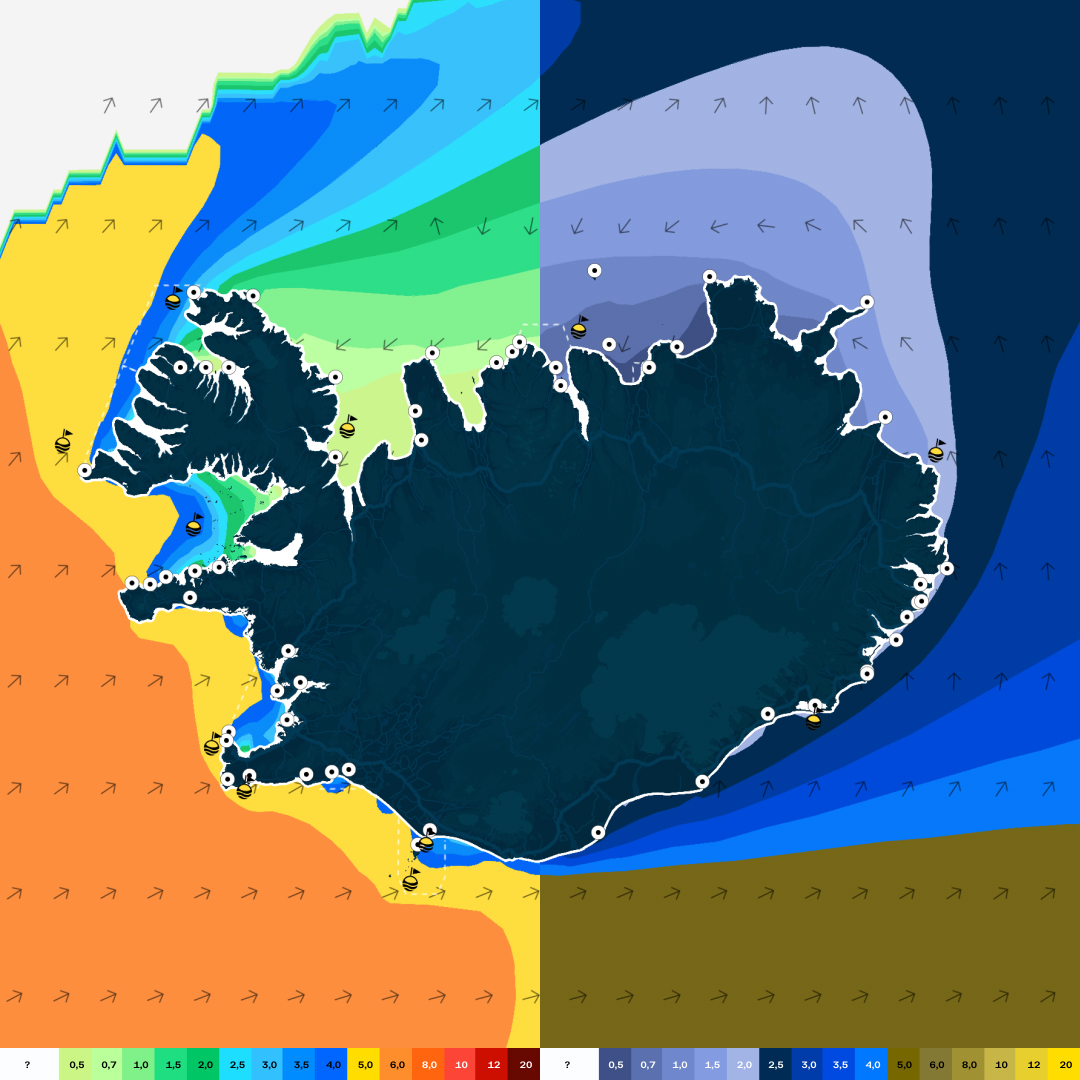Tunnels
The Icelandic road system currently includes 12 tunnels, totaling 64km in length.
The IRCA has put together an overview of potential tunnel options that have been discussed and explored in recent years; there are 23 different tunnel options, 18 in the countryside and 5 in the Reykjavík area.

In many areas, tunnels are the only way to ensure effective, year-round road transport. Tunnels greatly influence the connections between areas of employment, whilst also strengthening regional development and improving traffic safety. Tunnels are a necessity all over the country; however, it is safe to say that the direst need is centered around Vestfirðir, Tröllaskagi, and Austfirðir.
A financed long-term tunnelling schedule — where 14 of the most important tunnel options will be implemented in the next 30 years, instead of 80 to 100 years — will transform the standard of living and strengthen the competitive capacity of regions as they receive better access to services. Unwanted and dangerous bottlenecks that form along mountain roads will be circumvented, ensuring safe transport for inhabitants and industries, year-round.
Tunnelling schedule
In the 2020–2034 transport plan — approved by parliament on 29 June 2020 — one of the stated goals is to perform a comprehensive analysis of tunnel options in Iceland. Options for individual routes are to be evaluated with respect to suitability, cost, and social benefit. On the basis of that analysis, tunnel options should be prioritised for the long term. This work is now almost complete.
In 2021, the IRCA published an overview of those tunnel options that have been most widely discussed and explored in recent years, and formed the basis of the aforementioned analysis. The University of Akureyri Research Centre (RHA), subsequently carried out an assessment of potential returns, traffic safety, connections facilitated between regions, and regional development for each of the tunnel options.
The RHA’s report was first published in 2022, with an additional chapter on Seyðisfjarðargöng and Mjóafjarðargöng published in the beginning of 2023.
Prioritisation
Following this, the IRCA submitted a proposal for the prioritisation of tunnel options, with special consideration given to the goals of the transport plan regarding safe and easy transport, economical transport, environmentally sustainable transport, and positive regional development. The urgency of the problem that each individual tunnel is meant to solve was also taken into account.
The following prioritisation is proposed:
- Fjarðarheiðargöng
- Siglufjarðarskarðsgöng
- Hvalfjarðargöng 2
- Tunnel between Ólafsfjörður og Dalvík
- Tunnel between Ísafjörður and Súðavík
- Widening of Breiðdalsleggur,
- Seyðisfjarðar- and Mjóafjarðargöng
- Miklidalur and Hálfdán
- Klettsháls
- Öxnadalsheiði
Furthermore, it is proposed that the tunnelling schedule be reviewed in conjunction with the subsequent review of the transport plan each time. For later evaluation the following tunnels are proposed:
- Reynisfjall
- Lónsheiði
- Hellisheiði eystri
- Berufjarðargöng and Breiðdalsheiðargöng

Dýrafjarðargöng during the construction period. The tunnel was opened for traffic in October 2020.
Goals for economical transport
- A plan is to be formulated regarding the development and financing of tunnels, with reference to neighbouring countries’ experiences of similar undertakings. A new public company is to be established around the development of infrastructure.
- A plan will be formulated regarding the development and financing of tunnels, with similar reference to the experience of neighbouring countries. Work on this is to be carried out in conjunction with the work of a project office around revenue generation through transport.
- Responsible parties: Ministry of Infrastructure and IRCA.
- Revenue through traffic – It is assumed that tunnel construction will be financed by tunnel tolls.
- From the Transport Plan: Accelerated process all over the country, according to the transport plan, the tunneling schedule, or collaborative projects, assumes that financing will be wholly or partly achieved by the collection of road tolls. Further undertaking of the aforementioned financing will be carried out with the joint project office of the Ministry of Infrastructure and the Ministry of Finance and Economic Affairs. For future projects, it is important that the state’s gathering of revenue from traffic is sufficient to pay for necessary investments, to create flexibility for the acceleration of nationally beneficial projects, and to maintain the in-place incentives for energy transition. Emphasis will be placed on fair collection methods for all citizens. In this regard, the impact on transport cost within regions will be examined, as well as comparing said impact between various social groups.
Four projects are now planned.
- Dýrafjarðargöng – completed
- Fjarðarheiðargöng
For the transport plan that is currently in the consultation portal, the following projects have been added:
- Hvalfjörður Tunnel – preparation
- Ólafsfjörður – Dalvík – preparation
Hvalfjörður Tunnel
What happens when a car breaks down- or if an accident occurs in the Hvalfjörður Tunnel? What should the drivers do? This video displays what happens when cars break down in the tunnel and how drivers should behave in these circumstances. The video is in Icelandic.
Monitoring
The most traffic-heavy tunnels are equipped with incident cameras and a monitoring system, so that shift leaders are able to respond when cars stop, something falls of a car, or if the tunnel needs to be used for priority transport. The tunnels are monitored through the use of surveillance equipment. There are strict safety requirements for tunnels and monitoring is one of the factors ensuring that the IRCA is able to respond quickly if something happens.








